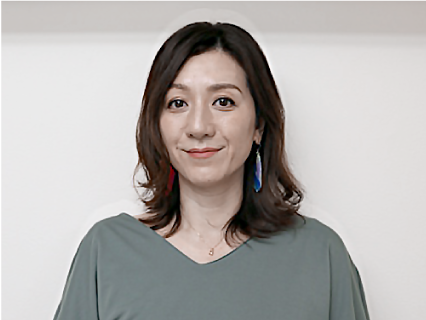In doing household chores with our partners, we often feel dissatisfied due to differences in our values and the environment in which we were raised. Are we asking too much of our partner or are we too concerned about it? I believe that many people spend their daily lives with this kind of confusion.
In this issue, Ms. Yukiko Nonomura, who has turned around her husband’s way of thinking about and taking charge of housework and published her book “A List of Housework That Husbands Don’t Know,” talks about tips for communication between spouses regarding housework and childcare and the division of household chores based on her own experiences.
Not “I can’t” do housework, but “I don’t know”.

This year, after almost 18 years of marriage, I finally realized one thing two years ago, and from that point on our marriage changed forever. My husband was not incapable of doing housework; he just did not understand the whole structure of housework.
For example, taking out the garbage” is a household chore that involves several steps, such as collecting the garbage from each room, sorting it, setting up garbage bags, wiping out the garbage cans, and leaving the collected garbage at the entrance so as not to forget to dispose of it. My husband thought that taking the garbage from the front door to the garbage collection point was just “taking out the garbage. There was a difference in perception between my “taking out the trash” and my husband’s “taking out the trash,” and these small complaints became irritating and led to fights.
So I made a list of the details of the chores I do. This is what we call visualization of housework.

By showing the list of chores I made to my husband, he understood for the first time the overall structure of the chores and how much difference there was in the tasks and how only a portion of the chores could be done.
After that, as if past dissatisfaction was a lie, he began to take the initiative and care for me by doing the chores I could do and taking charge of household chores ahead of me. All of the fights and struggles we had in the past have disappeared, and now I have no complaints at all. It took a lot of hard work to get to this point, though. (Laughter)
Like me, many couples may be frustrated and wonder, “Why don’t they get it?” But differences are inevitable. Talking it out and unraveling the mystery can make a big difference in your relationship.
Tips for doing household chores comfortably with your partner

When both wives and husbands take their housework for granted, they become less appreciative. Having meals, having laundry folded, having a clean room. Why not start by expressing your sincere appreciation to your partner for all the work he or she has done for you? This alone will make both of you feel good about your future housework.
Second, don’t expect perfection. There are household chores that we are good at, like, or dislike. In my case, I dislike ironing and folding T-shirts. If you understand that your partner also has his/her own strengths and weaknesses, you will not have to look for things that are not perfect and you will not have to be frustrated with them.
Also, each person has different values about things, and it is necessary to communicate properly about things that you find repugnant. For example, if I consider washing the dishes complete when the sponge is wrung out and the sink is wiped clean after washing, but my husband only washes the dishes and does not wring out the sponge or wipe the sink.
In that case, tell them why and that you don’t like it, saying, “Sorry, I don’t like it in this situation because it’s so filthy. Surprisingly, they will say, “Oh, I didn’t know that, I’m sorry! I’ll be careful.” so it is important to tell them when it is a small problem. Also, if you decide to be patient, continue to be patient at that time. It is not good for one’s mental health if one’s feelings waver each time between telling, not telling, and putting up with it.
The way to say or do something depends on the person you are talking to. There is no correct answer, but rather than saying, “Do it,” or “Do it,” I tell them, “It would be helpful for me if you would do it,” and when they help me, I thank them and praise them for being better than me. The trick is to have the mindset of investing in your partner’s development so that it will be easier for you in the future. (Laughs)
Discuss this with your life stage.

I believe that marriage is founded on the spirit of giving thanks and mutual support. Also, housework can only continue if there is love for one’s partner and family. Before and at the beginning of marriage, each of us has our own ideals for family and marital relationships, but if we want that, we should have a thorough discussion and find what is best for us. Also, the list of chores will change as the children grow and their own work situations change. Set aside time to discuss your family on a regular basis. I believe that by discussing your work situation and the percentage of time you can spend on your family, your partner will become more family oriented.














